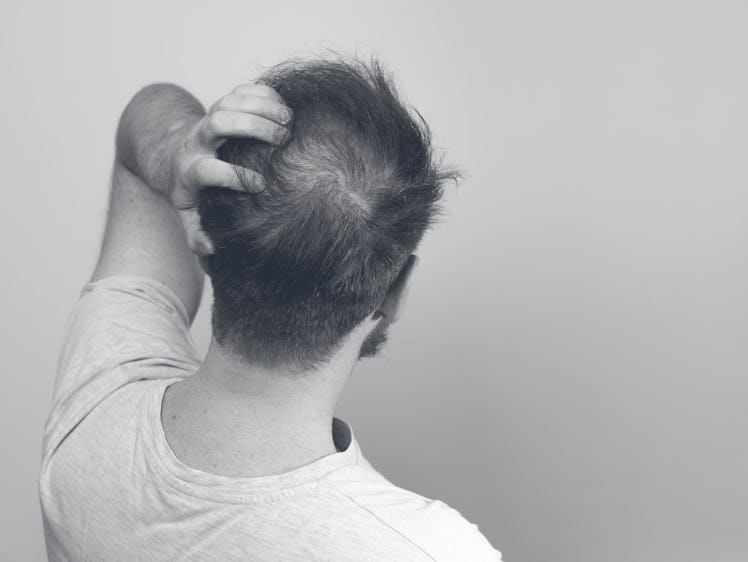Hair Loss And Long COVID Linked, According To Study
Researchers have uncovered a rash of new long COVID symptoms including, yes, hair loss.

Researchers have uncovered a rash of new long COVID symptoms, leading experts to believe the World Health Organization’s list of 33 symptoms isn’t covering all the bases — such as links to hair loss and erectile dysfunction.
According to the new research out of the University of Birmingham in the U.K., the list of long COVID symptoms might be twice as long as previously believed and include effects not previously thought to be associated with COVID infection at all.
“We explored the effect of COVID-19 on 115 symptoms of which we found 62 symptoms to be statistically significantly associated with COVID-19 at 12 weeks [or more] after infection,” study co-author Anuradhaa Subramanian told New Scientist. “Some of these new symptoms, like reduced libido, sexual dysfunction, and hair loss, are really new. They had not been attributed to COVID-19 in the longer term before.”
Subramanian and her team compared the records of 486,149 people who tested positive for COVID but were not hospitalized from January 2020 and April 2021 to records of 1.9 million who did not test positive for COVID during that timeframe.
The team found that those who tested positive for COVID were more likely to develop any of the study’s 62 included symptoms at least 12 weeks after infection than those who did not test positive. Particularly worrying for men, some of those symptoms include ejaculation dysfunction, hair loss, erectile dysfunction, and reduced libido.
“In addition to premature, delayed, and retrograde ejaculation, our definition includes painful ejaculation, late ejaculation, and fear of ejaculation,” Subramanian explained. Retrograde ejaculation occurs when semen backtracks into the urinary bladder instead of exiting the body through the penis.
The exact cause of these symptoms and how they’re related to COVID infection is not clear, but there is speculation that, at least with hair loss, the symptoms might be related to stress. “When your body is in a state of stress, it can result in new hair growth, which actually paradoxically causes your existing hair to fall out,” co-author Shamil Haroon explained of the condition, called telogen effluvium. “It’s not like a single patch of hair, but rather it’s kind of generalized hair loss, so that is one potential mechanism for COVID-related hair loss.”
Sexual dysfunction, including ejaculatory problems, can be related to chronic illness, which led the team to consider COVID infection, in the case of those living with long COVID symptoms, as a chronic condition rather than an acute illness we recover from quickly. “People with other chronic illnesses frequently experience sexual dysfunction, and we find the same with COVID-19, suggesting COVID-19 is a chronic illness,” said Haroon. “But we haven’t looked at other viral infections in the way that we’ve looked at long COVID, and I think this is what long COVID has made us realize, that viral infections are not just acute events.”
Previous research has suggested that long COVID might impact male fertility by causing decreased sperm count and motility.
Other symptoms associated with long COVID include rash, respiratory difficulty, mental health changes, cardiovascular problems, and digestive complaints. More research is necessary to determine the full impact of long COVID on both mental and physical health and to determine the exact mechanism by which the virus so broadly affects the body.